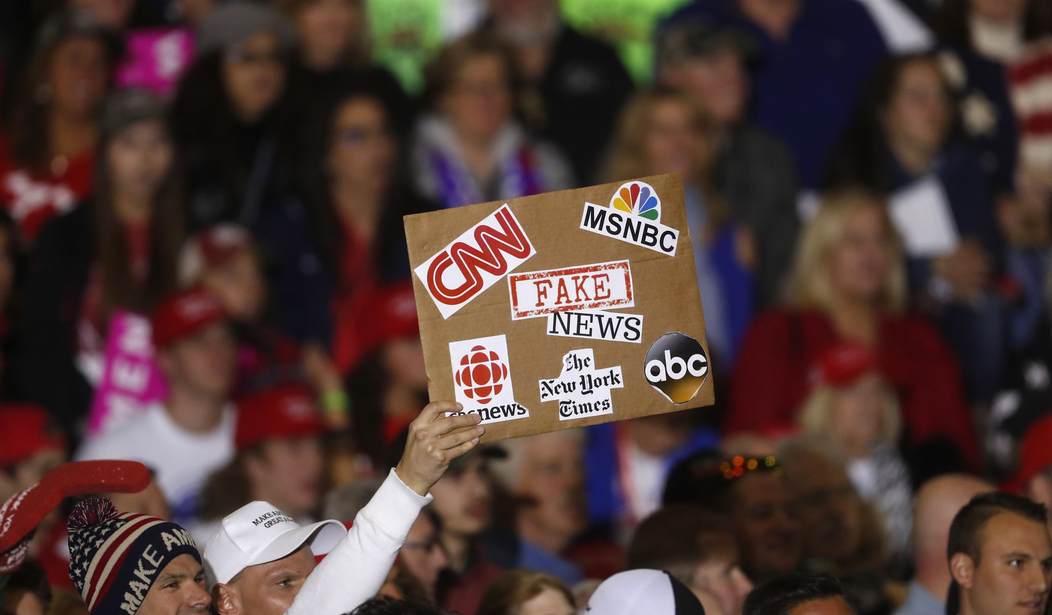We’ve long been familiar with media bias, where the opinions of those who own or produce news make their way into the stories they tell and even the choices of which stories are worth telling.
But in recent years, there’s been a new kind of journalism that deserves more scrutiny – when publications produce stories for the express purpose of achieving certain results.
In the case of Donald Trump, it was used to start the Russia collusion debacle and attempt to ruin him politically. But the tactic has more commercial uses as well.
In Washington, a publication known as the Capitol Forum seems to be set up to weaponize the press against certain companies. Many of its “journalists” are activists, and the sometimes-misleading stories from the pricey boutique publication, whose subscribers are mainly Wall Street financial firms and prominent law firms, have led to big losses for corporate shareholders and significant short-selling campaigns against targets of the stories.
In 2017, Capitol Forum published a story that said MiMedx, a biopharmaceutical company, was under investigation by the Veterans Administration’s Office of Inspector General. The publication cited documents obtained through a Freedom of Information Act request.
MiMedx officials said they were aware of the investigation, which dealt with “channel-stuffing” – the practice by some companies to ship more goods to suppliers than would be demanded to show strong sales – but were not its targets. The VA said it had not disclosed who it was investigating, which means it well could’ve been some other firm.
Recommended
Rather than wait for solid developments or even express the uncertainty inherent in its claim, Capital Forum’s director of sales emailed all the major investors in MiMedx to say the VA inspector general was investigating the firm. It then sought documents to try to show the firm was being investigated. When the inspector general turned down the request, Capital Forum used that as ammo for another email to top investors – offering to set up a call to “discuss” its “view on MiMedx.”
On that news, the firm lost 20 percent of its share value.
Then there’s Stamps.com, a firm that participates in the U.S. Postal Service’s Postage Reseller Program, which allows companies to resell Postal Service products and services at lower prices. In 2019, Capitol Forum wrote a few stories about Stamps.com and its relationship with the Postal Service. It then made a point of making additional Freedom of Information requests about the reseller program and noisily took the Postal Service to court when its requests were denied.
The activity – erstwhile journalism organization seeking info Postal Service refuses to produce about firm it “suspects” of having a too-cozy relationship with USPS – was enough. A short-seller named Marc Cohodes tweeted: “STMP is a scheme and I think the Insider Selling is the Frosting on the Cheesecake.”
This set off a short-selling campaign that involved a quarter of the firm’s shares and drove the price down to $40 per share in May 2019. By September 2021, Capitol Forum had moved on, and shares were selling for $326.
It’s one thing to engage in tactics to force short selling. The companies at least can find out and try to repair their image. But it’s another when its work is used to bring to bear the force of law. Law firms are a big part of Capitol Forum’s client base, and they use it both to seek new clients and for evidence in their existing cases.
Fleetcor, an Atlanta-based company that manages gas credit card programs for BP, Shell and Speedway, among others, is under fire now from the Federal Trade Commission for charging customers “hundreds of millions of dollars in mystery fees associated with fuel cards.”
Fighting the charges has been a struggle. The case went to the Supreme Court, which threw it out because the Federal Trade Commission had cited the wrong section of law in its original suit. But the FTC refiled the case, and the principal source of evidence in its complaint is Capitol Forum.
We know now – if we didn’t before – that there’s no such thing as unbiased journalism. We also know outfits that seek to do journalism right generally hire journalists to write their stories. At Capitol Forum, many of the journalists are activists settling scores from former positions. It has Steve Horn, a writer with DeSmog Blog, an anti-oil website. It has Lisa Epstein, a well-known anti-Wall Street activist, on business, and Dan Sherwood, another anti-oil & gas activist, working on environmental issues.
The First Amendment guarantees the right to say what we want. Discerning consumers can do what they will with the information. However, when journalism seeks to torpedo firms the publication doesn’t like, the truth is a likely casualty.

























Join the conversation as a VIP Member